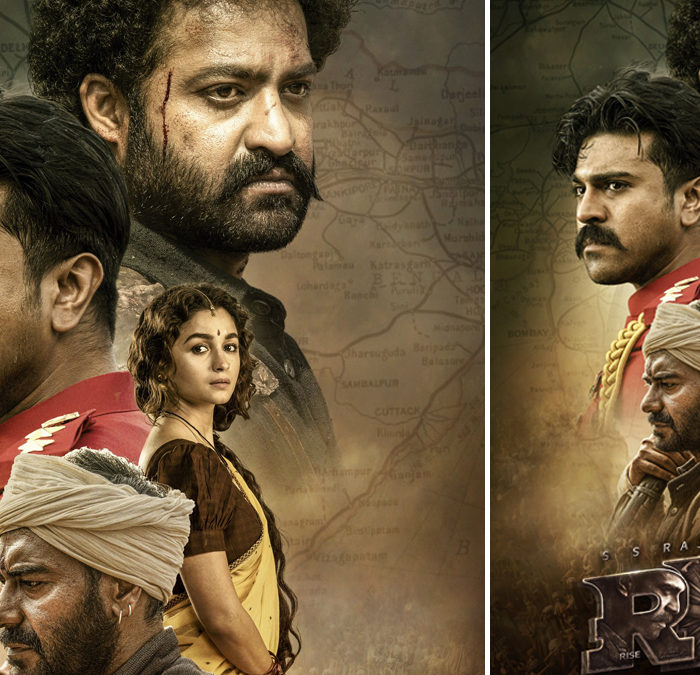
rrr filed pil in telangana high court before release
The Rajkot Updates news website brings you the latest news on the current affairs of Rajkot. The website has a team of experienced journalists who bring you the latest updates on politics, crime, courts, and other important stories.
Rajkot Updates brings you the latest news and developments in the Telangana Maha Court.
The latest news from the Telangana High Court involves a Public Interest Litigation (PIL) filed by Rajamahendravaram Raj Kumar, popularly known as RRR. The PIL was filed just before the release of his highly anticipated film “RRR.”
The PIL seeks to prevent piracy and illegal streaming of movies on various online platforms. RRR has taken this step to ensure that his hard work and efforts put into making the movie are not compromised by piracy. The court has yet to make any decisions on this matter.
As per further developments, reports suggest that RRR is seeking compensation for damages caused due to piracy in case it happens despite their best efforts. This move has been welcomed by many in the film industry who have long struggled with piracy issues affecting their box office collections. It remains to be seen how this case pans out in court, but it certainly highlights the need for stronger measures against piracy in today’s digital age.
Filed petition by RRR against Telangana government
rajkotupdates.news : rrr filed pil in telangana high court before release, In a significant development, RRR has filed a Public Interest Litigation (PIL) against the Telangana government in the High Court. The petition primarily challenges the state’s decision to impose restrictions on cinema halls and multiplexes post-COVID-19. The filmmakers argue that the measures are arbitrary and violate their fundamental right to carry out business.
The PIL came just before RRR’s much-awaited release, which is expected to hit screens soon. This move indicates that even big-budget films like RRR are finding it challenging to navigate through the government’s COVID-19 protocols. Moreover, it raises questions about how other films will fare with these restrictions in place.
While there is no clarity on when or how the Telangana High Court will respond to this PIL, it puts the spotlight firmly on government regulations affecting India’s entertainment industry. With more production houses and filmmakers affected by COVID-19 guidelines daily, many may follow in RRR’s footsteps and take legal recourse if they believe their rights have been violated.
Highlights of the petition
The petition filed by RRR before the Telangana High Court has been making headlines recently. The production house behind the upcoming movie, RRR, has sought a stay on its release until all dues are cleared with the distributor. This move comes after the distributor failed to pay the agreed-upon amount for distribution rights.
The petition highlights that despite numerous attempts to resolve the issue amicably, no resolution was reached. The production house claims that they have already incurred huge losses due to delays caused by COVID-19 and cannot afford any further financial setbacks. Furthermore, they argue that releasing the movie without receiving full payment would set a bad precedent and encourage similar behavior from other distributors in future dealings.
In conclusion, RRR’s move to file a PIL before its release is a bold step towards ensuring fair business practices within the film industry. It remains to be seen whether or not their demands will be met and if this case sets a new standard for contract negotiations in Tollywood.
What is the legal significance of the petition?
The legal significance of a petition cannot be overstated. A petition is a formal request made to a court or another authority that seeks redress or some form of relief. In the context of Rajkot updates. news, RRR filed a PIL (Public Interest Litigation) in Telangana High Court before its release. This suggests that RRR wants the court to intervene on an issue that affects the public interest.
In India, PILs are an important tool for enforcing fundamental rights and ensuring transparency and accountability in governance. By filing this PIL, RRR may have raised concerns about certain issues related to their movie’s release, such as censorship or distribution disputes. The high court will now review the petition and decide whether it has merit or not.
Overall, petitions like these have significant legal implications because they can lead to changes in laws, policies, or practices that affect the public at large. They are often used by individuals, organizations, and even government bodies to challenge decisions made by authorities and hold them accountable for their actions.
What are the possible implications of the petition?
The recent filing of a Public Interest Litigation (PIL) by RRR in the Telangana High Court before its release has drawn attention to the possible implications of this petition. The PIL was filed with the aim of preventing any negative portrayal of tribal communities in the movie, which could potentially lead to social unrest and discrimination against them.
One possible implication is that this petition might delay or even derail the release of RRR if it is taken seriously by the court. The producers may have to go through a lengthy legal process to ensure that their film does not offend any particular community and meets all legal requirements. Additionally, this could set a precedent for other groups to file similar petitions, leading to further delays and complications.
Another potential implication is that this petition could affect the box office performance of RRR. If audiences perceive that certain scenes or dialogues have been censored due to pressure from interest groups or legal proceedings, they may be less inclined to watch the movie or recommend it to others. This could result in financial losses for the producers as well as negative publicity for RRR.
On 17th March, RRR filed a petition in the Telangana High Court challenging the newly formed state government’s decision to merge six districts into one.
The Road and Roof Real Infra Private Limited (RRR) has filed a public interest litigation (PIL) in the Telangana High Court to challenge the decision of the newly elected state government to merge six districts into one.
The petition was filed on 17th March, before the official release of the government’s orders. The company claims that this merger would have a severe impact on its business operations and would disrupt several infrastructural projects currently underway.
This move by RRR has been met with mixed reactions from various stakeholders. While some are supportive of their fight against what they see as an unjust decision, others believe that it is merely an attempt to safeguard their own interests at the cost of local development. It remains to be seen how the Telangana High Court will respond to this petition and what implications it could have for both RRR and other private players operating in the region.
Regardless of the outcome, this case highlights the complex interplay between private entities and governmental policies in shaping regional development trajectories. As such, it underscores the importance of engaging all relevant stakeholders in these processes to ensure that decisions are made in a transparent, participatory manner that benefits everyone involved.
The petition argues that this decision is unconstitutional and will have significant legal implications.
The decision made by the Telangana High Court has sparked controversy and has raised concerns regarding its constitutionality. As a result, a petition has been filed arguing that the decision is unconstitutional and will have significant legal implications. The petitioner argues that the court’s ruling violates fundamental rights enshrined in the Indian Constitution, such as freedom of speech and expression.
Furthermore, legal experts believe that this decision may set a dangerous precedent for future cases involving free speech and censorship. The court’s ruling essentially gives authorities broad powers to censor content on online platforms without any clear guidelines or oversight. This could lead to arbitrary censorship of legitimate content and stifle dissenting voices.
Overall, this petition highlights the need for a balanced approach toward online content regulation that respects individual freedoms while also addressing issues such as hate speech, fake news, and misinformation. It remains to be seen how this case will unfold in court, but one thing is certain: it has brought important issues related to free speech and censorship into sharp focus.
The petition has already drawn the attention of several influential
The petition that was recently filed by RRR in Telangana High Court has already gained widespread attention from various influential individuals. The petition sought to prevent the release of Rajamouli’s upcoming movie, Roudram Ranam Rudhiram, citing copyright infringement issues. The case has caught the attention of several prominent figures in the Indian film industry who have expressed their support for both parties involved.
Among those who have voiced their opinions on the matter is acclaimed filmmaker Ram Gopal Varma, who tweeted his views on Twitter, stating that he believes RRR’s claims are unfounded and that Rajamouli had not copied anything from previous works. This tweet sparked a heated debate among fans and critics alike, with some supporting RRR’s stance and others siding with Rajamouli.
Despite differing opinions on the issue, one thing is clear: this legal battle could have significant implications for the future of copyright law in India. As such, it is likely to continue drawing attention from influential individuals across various industries as more information about the case becomes available.
Conclusion: This is just the beginning of a long legal battle for the accused
The legal battle for the accused in the RRR case has only just begun. With the PIL filed by RRR before his release, it is clear that he will put up a strong fight against the charges levied against him. The Telangana High Court will be scrutinizing every detail of this case and determining if there was any wrongdoing on either side.
It is important to note that this legal battle may extend over a long period of time. Even if RRR is ultimately found innocent, the damage to his reputation and career cannot be undone. The impact of such cases extends far beyond just their legal implications and can have lasting effects on those involved.
As we wait for updates on this case, it serves as a reminder of the importance of due process and fair trials in our justice system. Regardless of one’s guilt or innocence, everyone deserves a fair trial and an opportunity to defend themselves against accusations.
Also Read … wellhealthorganic-comdetox-water-works-in-reducing-weight
FAQs…
How much is Ram Charan getting paid for RRR?
Film trade analyst Manobala Vijayabalan has revealed that Ram Charan and Jr NTR are reportedly being paid Rs 45 crore each while Alia Bhatt and Ajay Devgn, who have a cameo role in the film, have been given Rs 9 crore and Rs 25 crore, respectively.











